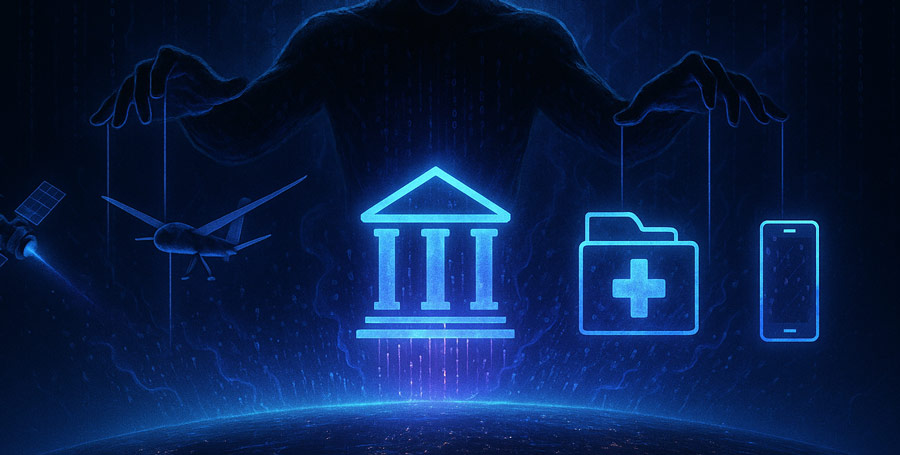Quantum Computing: The Global Race to Crack the Uncrackable – and the Terrifying Power That Comes With It

Quantum Computing: The Global Race to Crack the Uncrackable – and the Terrifying Power That Comes With It
For decades, encryption has been the bedrock of our digital world. It’s what keeps our bank accounts secure, our national defense systems protected, and our personal data hidden from prying eyes. But all of that is about to change. The world stands on the edge of a technological revolution so powerful it could tear down the very idea of digital security as we know it.
That revolution is quantum computing—and whoever masters it first will hold a terrifying kind of power. The power to hack the world.
What Is Quantum Computing, and Why Is It So Different?
Unlike traditional computers, which process data using binary bits (0s and 1s), quantum computers use qubits. These can exist as both 0 and 1 at the same time, thanks to a phenomenon called superposition. Combine that with entanglement, where qubits can influence one another regardless of distance, and you’ve got a machine capable of processing unimaginable amounts of data simultaneously.
In practical terms: the most advanced supercomputer today would take thousands of years to crack a 128-bit encryption key—the standard used to secure most systems today. A quantum computer could theoretically do it in seconds.
What Happens When Quantum Computers Can Break Any Password?
Let that sink in. Every password, every encrypted message, every classified file—broken in seconds. The implications are catastrophic:
-
National defense systems could be accessed and controlled remotely. Missile systems, radar networks, nuclear command systems—vulnerable.
-
Power grids and water treatment plants could be shut down, causing blackouts and chaos across entire nations.
-
Bank accounts, investment portfolios, and global financial systems could be emptied or hijacked.
-
Medical records, hospital systems, and emergency response networks could be exposed or disrupted.
-
Mobile phones, smart TVs, home security systems, and Internet of Things (IoT) devices could be used for surveillance, extortion, or sabotage.
-
Air traffic control, GPS satellites, and communication networks could be disabled or manipulated.
-
Even your Netflix account, your emails, and your smart fridge—everything connected to the internet—becomes part of the attack surface.
This is not just a cybersecurity concern. It’s a threat to global stability.
The Quantum Arms Race Is Already Underway
Governments know what’s at stake. That’s why the United States, China, Russia, the EU, and tech giants like IBM, Google, and Microsoft are pouring billions into quantum research. The goal is to reach quantum supremacy—the moment when a quantum computer can outperform all classical computers.
But it’s not just about computing faster. It’s about who gets there first. And unlike nuclear weapons, there are no international treaties, no watchdog agencies, and no real transparency in this race. The danger? A rogue actor—be it a nation or a private individual—could use quantum computing to destabilize countries, collapse economies, or hold the world to ransom.
What If the “Good Guys” Get There First?
There’s hope—but only if we act fast. Researchers are working on quantum-resistant encryption, also known as post-quantum cryptography. This would ideally involve new systems that even quantum computers can’t break.
Even better, a powerful quantum computer might be used to design a next-generation security infrastructure that is itself quantum-secure—effectively closing the door after peeking into the future of cyber warfare.
But here’s the hard truth: if quantum capabilities come before these defenses are ready, we won’t have time to react. Everything we rely on—our power, money, health, safety—could be taken offline, rewritten, or deleted.
A World Full of Bad Actors
The internet is already teeming with hackers, criminals, and hostile governments who exploit weaknesses for profit, power, or chaos. Now imagine giving them the ultimate skeleton key.
A terrorist group with quantum access could crash global stock markets in a day. A hostile regime could take over another nation’s defense systems. A black hat hacker could empty bank accounts, change legal records, or erase identities.
Quantum computers won’t just break today’s encryption—they’ll be able to unlock every encrypted file ever created, including ones from decades ago. So even data you thought was safe in a vault could be compromised when this technology matures.
The Clock Is Ticking
This is no longer a theoretical problem. Experts estimate that within 5 to 10 years, we could see the emergence of a quantum machine powerful enough to crack today’s encryption. That’s tomorrow in technological terms.
Some intelligence agencies already assume that foreign adversaries are harvesting encrypted data now, storing it until they can decrypt it later with a quantum machine.
So the question isn’t just “What if this happens?” It’s “Will we be ready when it does?”
Final Thoughts: This Is Real. This Is Now.
Quantum computing could cure diseases, model climate change, and revolutionize science—but it also has the power to upend the global order. It’s a tool. Whether it becomes our salvation or our downfall depends entirely on who gets it first, and what they do with it.
We must fund secure infrastructure. We must legislate now for a quantum future. We must demand transparency in research. And we must prepare for the unthinkable, before it becomes inevitable.
Because in the wrong hands, quantum computing isn’t just a supercomputer—it’s a doomsday device.








